The others were no better off: Lourdes’s blouse looked like a patch quilt because they kept having to sew scraps of material into it to make it larger. Tory had begun complaining that her joints ached something fierce, which meant that whatever was devouring her skin was beginning to move deeper into her body, and Michael. . . well, sometimes he looked like a madman on the verge of turning into a werewolf. He complained his girl-crazies were getting worse and that his heart beat so fast, he was afraid it might blow up in his chest.
They had all hoped that coming together would slow down their deterioration, but it hadn’t—in fact, things were progressing faster, and they could all be dead in a matter of days. Winston didn’t know how an astronomer could help, but he was desperate enough to try anything now.
Finding the man was not very difficult. A simple visit to an Omaha library uncovered several articles on the eccentric astronomer. Dr. Bayless was his name, but his crueler colleagues were more fond of calling him Dr. Brainless.
Winston fought to stay ahead of Michael and Lourdes and right behind Tory as they crossed the small college campus toward the physics building. Tory still shuffled through the copies of the articles they had found, trying to read in the late twilight.
“Listen to this—it says here that Bayless’s mother was a carnival psychic, and she gypped rich people out of thousands of dollars!”
“So?” scoffed Winston.
“So, the scientific community thinks Bayless is a quack as well and gives him the cold shoulder.”
“But he predicted the explosion of Mentarsus-H,” chimed in Lourdes, in her deep, whale-belly voice. “So who’s quacking now?”
Winston turned to Michael, who seemed distracted and bothered as if the air itself was pricking his whole body with needles as he walked.
“What do you think?” asked Winston.
“He probably won’t help us unless we bring him the broomstick of the Wicked Witch,” said Michael.
***
Behind the physics building stood the observatory—a small domed structure painted a peeling institutional green. It was no more an emerald city than their path had been a yellow-brick road.
As they pushed their way through the squeaky doors of the observatory, they were met by the smell of old floor varnish and a twelve-foot telescope with pieces missing. It was an unimpressive observatory, consisting of little more than the crippled telescope, a desk in a far corner and an arrow on the floor pointing north—in case anyone couldn’t figure that out by themselves.
Across the room, a thin man, with thinner hair, fought with workers—trying keep them working on the telescope, even though it was way past five o’clock. He was tall, with a slight roundness to his back from too many years making calculations at a desk. The four kids approached the ranting astronomer solemnly like a small minion of misery, and when he saw them he waved them off.
“No classes today. Go home.” His voice had a hostile, unfriendly tone that could only come from many years of bitter disappointment.
Tory cleared her throat and stepped forward. “Dr. Bayless, we’ve come a long way—we have to talk to you.”
Bayless turned to take a better look at them, then, with a disgust he didn’t even try to hide, said “My God! What happened to you?”
“That’s what we’re trying to find out,” said Winston.
Around them the workers were staring and moving toward the doors, whispering to each other about the freaks that had just walked in.
“Go on,” Bayless shouted to the workers. “Get out— see if I care.” They were more than happy to oblige. “The cosmic event of a lifetime, and the telescope had to break down this month.”
He took a moment to look at the four of them again, shook his head—shuddering with revulsion—and let loose a bitter laugh. “Life’s misfortunes just fall at my doorstep, don’t they? If it’s not a ruined telescope, it’s the wretched of the earth. Well, how can I help you?”
“What can you tell us about supernovas?” asked Tory.
“What can’t I tell you?” he replied, slipping into professor-speak. “Supernovas are the reason we’re all here. Oxygen, carbon, silicon—all the heavier elements are created in the explosions. Without novas, the whole universe would be little more than hydrogen gas ...” He paused and looked at them again, shuddering, but this time not laughing. “But you didn’t come here for an astronomy lecture, did you?”
“You predicted the explosion of Mentarsus-H,” said Tory. “We think our condition’s got something to do with that.”
Now Bayless’s look turned from revulsion to suspicious interest. He studied them intensely and began to pick at his ragged yellow fingernails.
“My prediction was luck,” he said. “At least that’s what my colleagues say.”
“Don’t go playing games with us, all right?” said Winston, pulling his thumb from his mouth. “If you know something, tell us.”
“You got a big mouth for a little kid,” said Bayless.
“I’m fifteen,” growled Winston.
Bayless sighed and nodded reluctantly. “All right, come on and sit down.”
Bayless led them to a corner of the observatory that had been set up as his office. Winston noticed that Michael kept his distance, breathing in gasps, like someone suffering from asthma, and shifting his weight from one foot to another like a caged animal. He’s got it bad today, thought Winston.
“The Scorpion Star,” said Lourdes to Bayless. “Tell us how you knew.”
Bayless leaned back in his desk chair, took a sip of cold coffee, and focused on his uneven fingernails, picking at them with an unpleasant click-click-click. Finally he spoke.
“It’s a curious talent,” said Bayless, “to look at the universe and know what it’s thinking. To sense that countless galaxies would be discovered in dark space. To feel that the universe is even older than most scientists think it is. To glance at a star chart and see one star missing in the tail of the Scorpion, only to see it reappear when you blink.”
“Intuition?” suggested Tory.
“My mother had it,” said Bayless. “She chose to use it to separate fools from their money and turned herself into a sideshow freak. I chose to use it for more noble purposes. Biology . . . astrophysics.” Then he angrily flicked a fingernail in an arc over their heads. It landed on the dark floor, where it lay like a crescent moon. “Unfortunately science has no room for intuition. Scientists find a million ways to spell ‘coincidence,’ and so I’ve become a sideshow freak after all.” Then he smiled grimly, and added, ". . . like the four of you.”
His smile made them all squirm. Everyone but Tory.
“The star blew up sixteen years ago,” said Tory. “We’ve figured out the exact date.”
“Students of astrophysics, are you?” said Bayless, beginning on a new fingernail.
“No,” said Tory. “That was the day each of us was conceived.”
Bayless raised his attention from his marred fingertips to the four of them. “Remarkable,” he said, studying their faces, and movements. “Remarkable. Perhaps these exploding stars have more to do with us than I’ve dared to imagine.” He pulled out a microcassette recorder from his desk and hit the record button. “Do you mind if I record all this?”
“We’d rather you didn’t,” said Lourdes.
He put his tape recorder in his desk, but Winston couldn’t tell if he turned it off.
“Tell me everything,” he said. “Everything to the last detail. . .”
***
They took a good hour to go through their stories, and Bayless listened, attentive to every word. When they were done, the astronomer was practically drooling with excitement.
Читать дальше
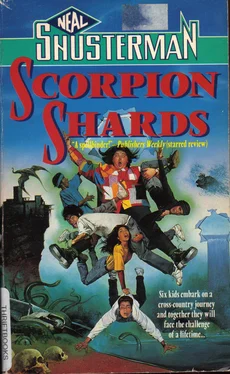
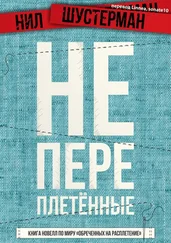
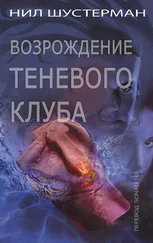
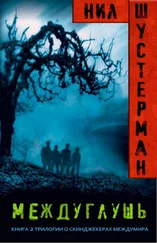
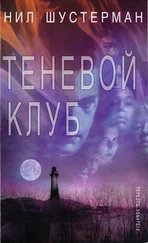
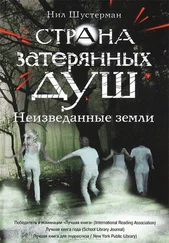
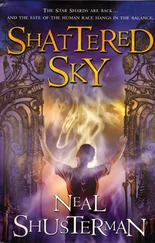
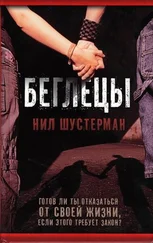
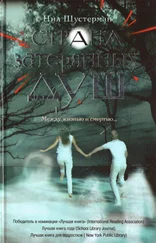

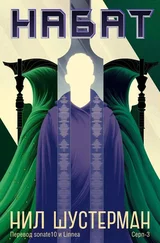
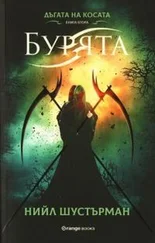
![Нил Шустерман - Жнец [litres]](/books/418707/nil-shusterman-zhnec-litres-thumb.webp)